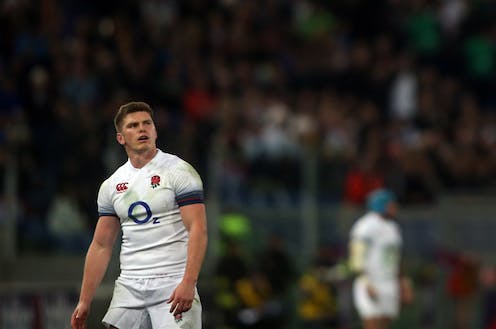
England Rugby Union captain Owen Farrell recently announced he was deciding to step away from international duties. The 32-year-old said his decision to sit out of the 2024 Six Nations tournament was so that he could prioritise his and his family’s mental wellbeing.
Farrell’s decision to step back, especially as an elite athlete, was undoubtedly not an easy one to make. Not only do professional athletes face intense pressure to perform their best at all times, many still find it difficult to speak up when it comes to voicing their own mental health concerns.
Although athletes have better physical health compared to the average person, they experience similar rates of mental health issues.
Most elite athletes are at the peak of their sport when they’re already already at higher risk of experiencing poor mental health. Research shows that common mental disorders, such as depression and anxiety, are most likely to present in males between the ages of 25-34.
Elite athletes experience numerous critical, life-changing moments throughout their short career – such as transitioning to the first team, living away from home for the first time, sustaining long-term injuries that may affect their ability to play, contracts not being renewed, and – eventually – retirement.
These can all have a negative affect on wellbeing. For example, a 2022 study on Olympic and Paralympic athletes found that more than one-fifth had experienced high levels of psychological distress. Most of these athletes said they experienced the greatest levels of psychological distress when planning to retire or they had sustained an injury.
In 2018, the UK government produced a mental health and elite sport action plan to promote improvements in wellbeing support for professional athletes. As a consequence, various initiatives have been created – such as the one promoted by England Rugby – to provide mental health education to players. The UK Sports Institute also founded a team to provide mentoring services to athletes.
Barriers to support
Yet despite these initiatives, research continues to suggest that elite athletes don’t feel they have a safe space at their club to talk about their mental health. Family remains their main support network – which can be problematic, especially when training or playing away.
In a study conducted with elite rugby players, it was found that the perceived stigma of having a mental health issue was one of the most common reasons why players avoided seeking help. Athletes also lacked knowledge on where to seek support.

KOTOIMAGES/ Shutterstock
This stigma is also a shared barrier to athletes feeling confident in seeking mental health support. While this mindset is becoming less prevalent now, athletes continue to fear disclosing mental health problems out of a concern that it will be regarded as a sign of weakness.
Another problem is that most elite athletes’ mental health isn’t monitored on the same level as their physical health. Since mental health problems can’t be detected as easily as injuries, it’s clear that improvements are needed in how all professional athletes’ mental health is screened.
Clubs also need to go further than relying on young athletes to know when they need help. Instead, clubs should make sure they’re monitoring athletes and regularly providing them with wellbeing support. Increasing evidence suggests that screening could better ensure players get the support they need before reaching crisis point.
Hiring qualified occupational therapists may be one way to ensure that players get the support they need. Occupational therapists would be able to assess athletes holistically and help them engage with activities that are meaningful to them outside of their career. This could help provide more balance in an athlete’s identity, and better prepare them for life after sport.
Farrell’s decision to step away from his international duties to spend more time with his family accentuates the need to help athletes engage more often in purposeful pasttimes that can promote their wellbeing.
It’s especially important that athletes are assessed during major transitions – such as retirement and when they experience an injury. These are periods when an athlete’s normal routine has been disrupted, which can have a major affect on them as many athletes are used to having followed a strict routine from a young age.
Some athletes also experience anger when they leave a club or retire from the sport altogether, which can inhibit them asking their former club for help. Helping athletes throughout their career to have a better sense of identity outside of the sport may help them to better cope when they are deselected or retire.
There are probably many elite athletes today that still don’t have the confidence to speak out about their mental health struggles. But a growing number of athletes are – including tennis player Naomi Osaka, Olympic gymnast Simone Biles and English footballer Harry Kane.
Farrell’s decision to prioritise his mental health has been met with support by his teammates – with some saying his decision to prioritise his mental health could inspire more athletes to do the same.
![]()
Victoria Wilkinson does not work for, consult, own shares in or receive funding from any company or organization that would benefit from this article, and has disclosed no relevant affiliations beyond their academic appointment.



























